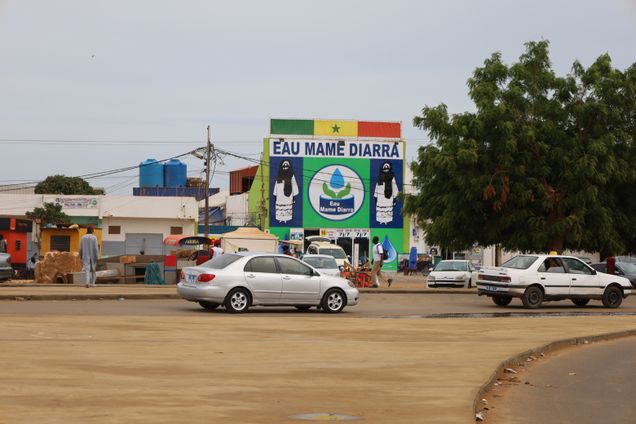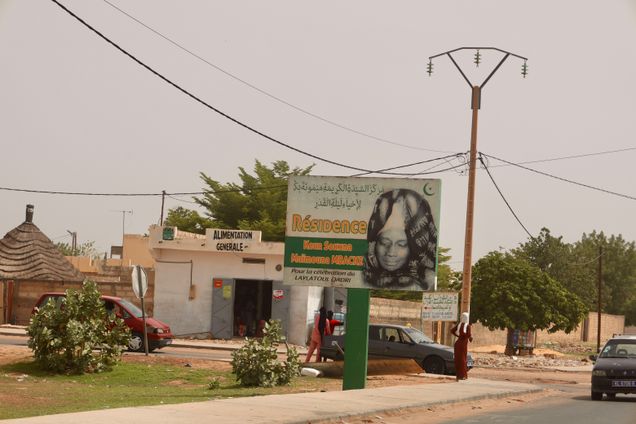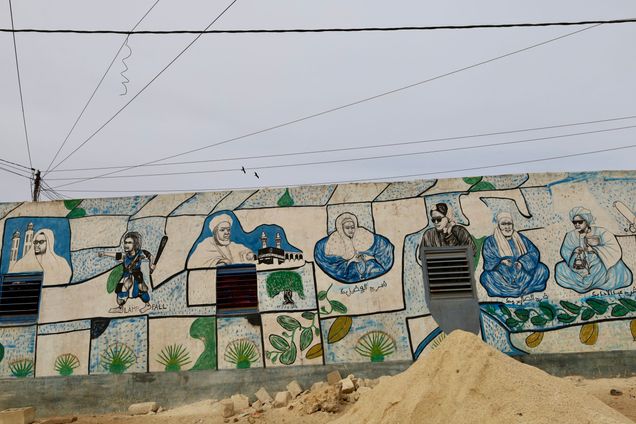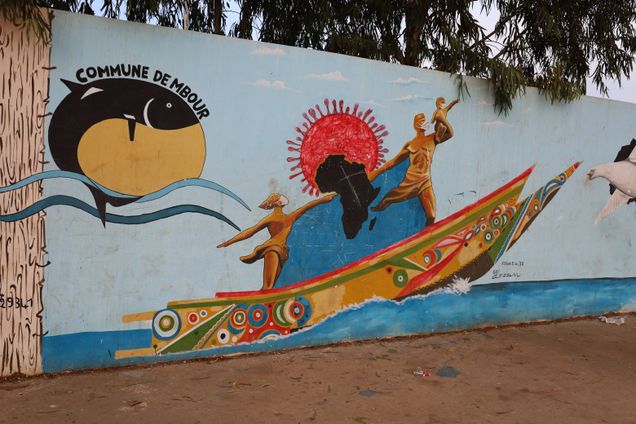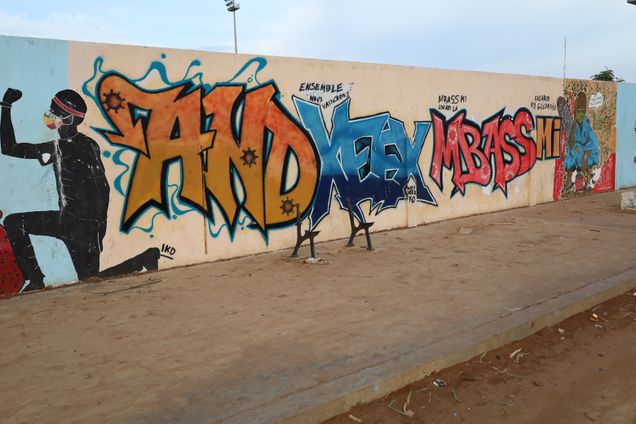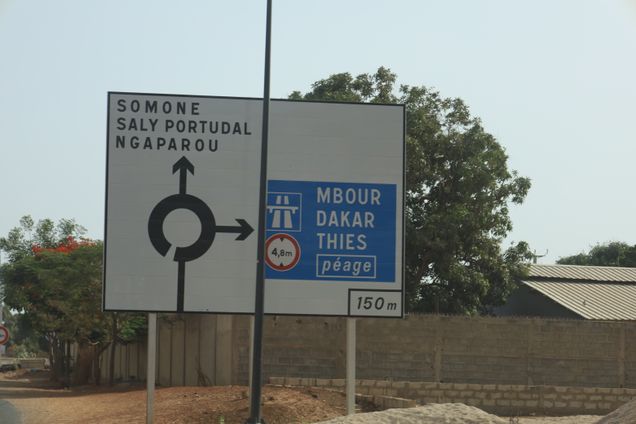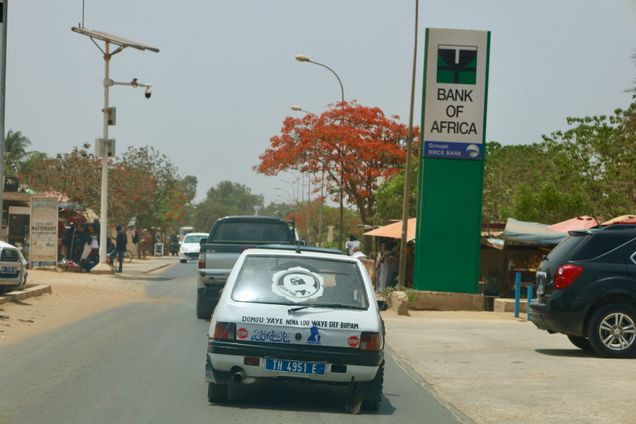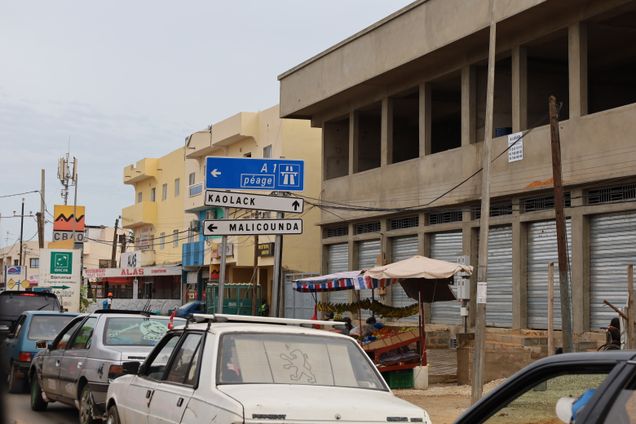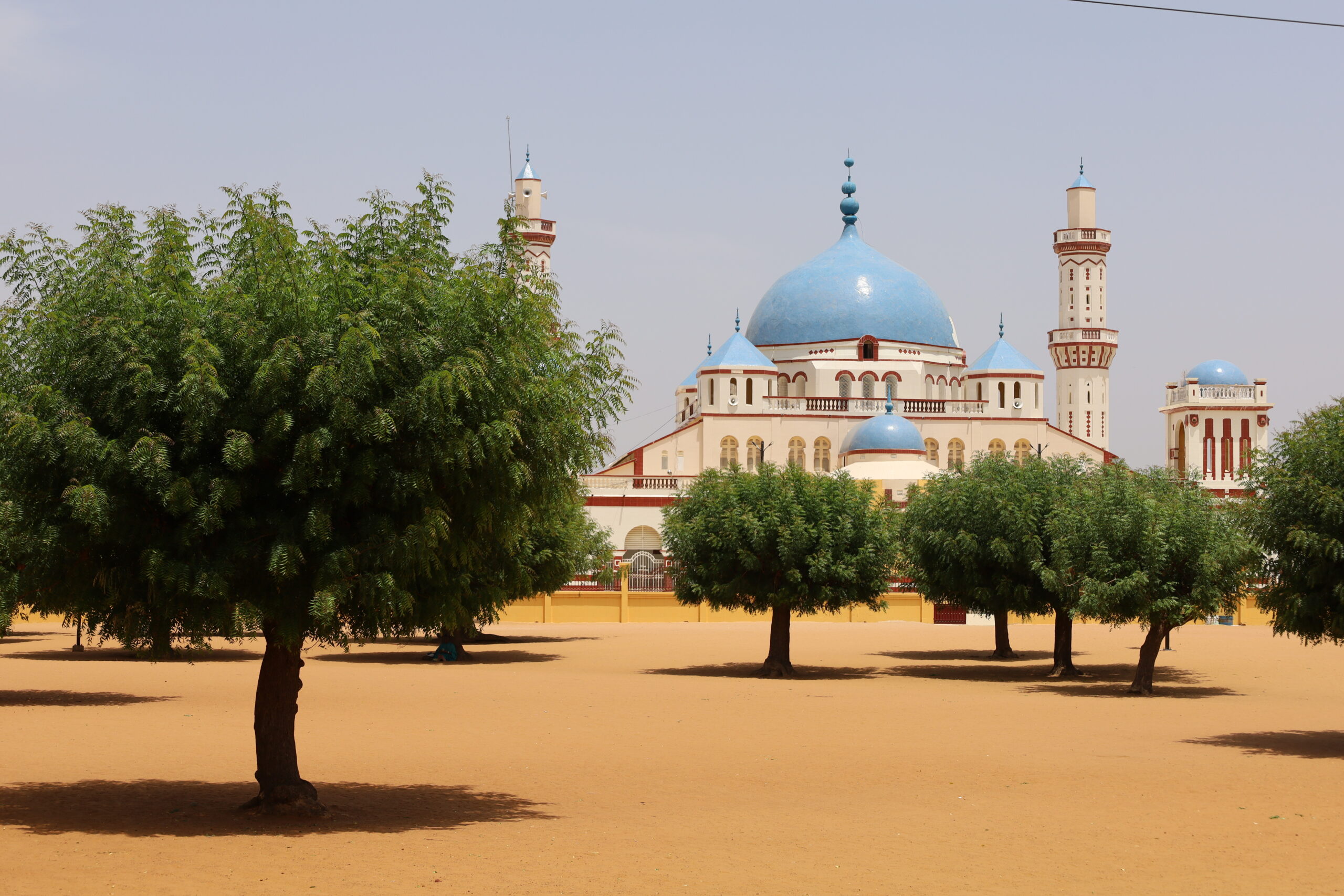Unit 6A: Magatte Sylla
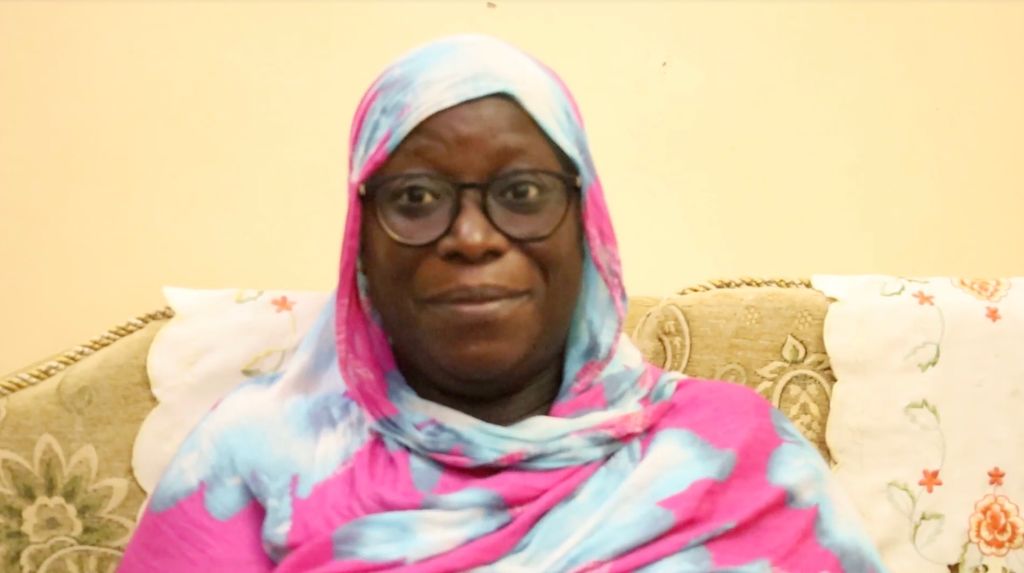
Metadata
| Title | Conversation with Magatte Sylla |
| Interviewer | Fallou Ngom and Ablaye Diakite |
| Subject | Importance of Ajami literature, gender, education |
| Content | Magatte Sylla (Màggat Silla in the standard Wolof Latin script spelling) was born and raised in 1975 in Dakar, Senegal. She attended both Quranic and French schools in Dakar. She was a student of the Martin Luther King Middle School in Dakar, and also attended a Quranic school. Later, she attended the John Fitzgerald Kennedy High School in Dakar and then went on to Gaston Berger University where she studied for four years. In this interview, Mrs. Sylla shares with us her educational and professional trajectory and discusses her work as an employee of the Senegalese Ministry of Education. She also reflects on the significance of Ajami literature, and talks about the issues that she is researching for her Ph.D. dissertation, which is focused on Wolof Ajami literature and on women’s issues and role in Senegalese society. Mrs. Sylla also discusses the work of Sëriñ Muusaa Ka, a famous Wolof Ajami poet, that has been significant in her research. She discusses the strategies she is using to research the traditions of her native people, and reflects on the importance of learning about the work and lives of the influential elders of the past. |
| Language | Wolof |
| Script | Wolof Ajami (locally called Wolofal) |
| Location | Mbour, Senegal |
| Pedagogical content/application | Includes relevant linguistic, stylistic and cultural skills as identified in our assessment guidebook/ ACTFL guidelines |
| Access condition and copyright | These materials are subject to copyright and are distributed under the terms of the Creative Commons Attribution-NonCommercial 4.0 License, which permits non-commercial use, distribution, and reproduction in any medium, provided the original author and source are credited. For use, distribution or reproduction beyond these terms, contact Professor Fallou Ngom (fngom@bu.edu). |
| Contributors | Fallou Ngom, Ablaye Diakite, Daivi Rodima-Taylor, Elhadji Djibril Diagne, Gana Ndiaye, Alison Parker, and Frank Antonelli. |
| Required citation information | Fallou Ngom (PI), Ablaye Diakite, Daivi Rodima-Taylor, Elhadji Djibril Diagne, and other contributors. 2023. “Conversation with Magatte Sylla.” https://sites.bu.edu/ria/wolof/wolof-unit-6a/ |
Videos
Wolof with English Subtitles
Wolof with Latin Script Subtitles
Community Images
(click on the image for a larger view)
Pedagogical Activities
Glossary
- Àtte dëgg: To judge fairly and impartially
- Comboñ b-: Diacritic, sign
- Dellusi: To return, come back
- Dénkaane b-: Recommendation, counsel, advice
- Diiwaan: Region, area
- Fanaan: To spend the night, sleep over
- Faxiir b-: Poor, needy, from Arabic faqīr
- Fiqh: Islamic Jurisprudence, from Arabic Fiqh
- Gëdd b-: Due respect, attention, regard, consideration
- Gëstu: To research, inquire, investigate
- Jaar-jaar: Background, itinerary, trajectory, path
- Jàngalekat: Instructor, teacher
- Jeexital b- or njeexital l-: Consequence, vestige, mark, leftover, ramification
- Jéggal: To excuse, pardon
- Jéggalu: To ask for forgiveness, apologize
- Marsiya b-: Elegy, biography, funerary poem, from Arabic marsiyya
- Mbokk: Relatives, extended family, from bokk (to share, belong)
- Ñaax: To urge, encourage, exhort
- Ñag b-: Traditional enclosure surrounded with thorny branches
- Néew ji doole: Literally, people with little strength, i.e. the poor
- Sahaaba or Saaba: Companion of Prophet Muhammad, from Arabic saḥāba
- Tàggat: To raise, train, educate, exercise
- Téere b-: Book. Also used to mean amulet
- Woroo: To have differences, contradictions, conflicting views
- Xëtu tënk: Summary page
- Xóotal: To deepen, go in-depth
- Yàlla: God
- Yedd: To counsel, guide, advise
- Yërëm: To feel pity for x, be sad for x
- Yilif: To command, rule, lead, govern
Notes
- Bàjjan or bàjjen j-: Paternal aunt, a central figure in Wolof society whose advice and opinions are sought after on important family matters.
- Gane àdduna: “To visit the world.” A Wolof expression meaning to be born. The phrase is rooted in the Muslim belief that life on earth is fleeting and that human beings are only here as visitors. True life is believed to be in the hereafter.
- Laylatul Qadr: Night of Power. A night of prayers and supplications celebrated by Muslims. According to the prophetic tradition, it is on one of the last ten days of the month of Ramadan.
- Maam Cerno Mbàkke or Mame Thierno Mbacké (1863-1943): Ahmadu Bamba’s younger brother and personal assistant. He was known as Thierno, Ibra Fati Mbàkke, or Ndaamal Daaru. He is remembered as an educator and a specialist of Islamic jurisprudence, or Fiqh. He was responsible for sorting out many legal issues in Murid communities.
- Maam Jaara Buso or Mame Diarra Bousso (ca.1833-1866): The mother of Shaykh Ahmadu Bamba. She is also known as Soxna Jaara Buso or Sokhna Diarra Bousso. She is celebrated in Murid sources as the epitome of virtue. She rests in the town of Poroxaan or Porokhane, which has become a major pilgrimage site for Murids.
- Mafatihul Bishri: Keys to Joy. This is the title of a long Arabic poem by Shaykh Ahmadu Bamba. His followers treat it as his religious, political, economic, and social blueprint for the city of Touba.
- Muadh ibn Jabal or Maas ibnu Jabal in Wolof (603-639): The youngest companion of Prophet Muhammad who was sent to lead the nascent Muslim community in Yemen.
- Ñag: Literally, a protective enclosure made with thorny branches to secure a farm from animals. Also refers to personal protections from all manner of natural and supernatural harm.
- Sëñ Gaawaan, Sëriñ Gaawaan, or Serigne Gawane (1867-1941): “Master of Gaawaan.” This is the nickname of Ahmadu Bamba’s young brother and disciple Shaykh Anta Mbàkke who lived in the village of Gaawaan. He was the wealthiest Murid of his time and the greatest financier of the Muridiyya in its early days.
- Sëriñ Mbàkke Buso or Serigne Mbacké Bousso (1864-1945): A maternal cousin of Shaykh Ahmadu Bamba and one of his early followers. He is remembered in Murid communities as a great astronomer and mathematician.
- Sëriñ Muusaa Ka or Serigne Moussa Ka (1889-1963): A disciple of Shaykh Ahmadu Bamba and the most famous Wolof Ajami poet. He was a hagiographer and historian who cross-pollinated Bamba’s writings, Islamic sources, and the works of his senior colleagues.
- Wasiyatul Niswaan: Advice for Women. The title of an Ajami poem written by Muusaa Ka dedicated to women, as the title suggests. From Arabic, Wasiyat al-Niswān.
Exercises:
Comprehension || Writing || Listening / Speaking and Conversation || Cultural Competence
Comprehension: Video
Comprehension: Image
Writing
Listening / Speaking and Conversation
- Xëtu Tënk ak Tontu ay Laaj: Defal ci widewoo bi ab xëtu tënk ci Wolof. So noppee nga jàng ko ci kanamu ndongo yi. Boo noppee, ñu laaj la ci li nga tënk, nga tontu leen.
Cultural Competence
- Woneel ay doxin walla ngëm-ngëmi aadaa yu fës ci biir widewoo bi.
